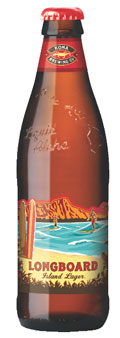
As part of its strategy to deliver that improvement, CBA is planning to grow by about 100,000 barrels annually via a contract brewing arrangement with Blues City Brewery LLC in Memphis, Tenn.
“This partnership will allow us to support growth in the Southeast and Midwest in 2014 and the years to come,” said Scott Mennen, the vice president of brewery operations. “Having an additional brewery in our brewing footprint, from a supply chain standpoint, allows us to get our beer more efficiently and effectively to the areas where we are seeing the most growth.”
During its third quarter earnings call last November, CBA said it operated at 77 percent capacity utilization for the quarter — in other words, plenty of room to grow. But in order to continue improving gross margins, Mennen said the outsourced production in the Southeast — which would be equivalent to about 14 percent of the 725,000 barrels the company produced in 2012 — was the best option.
The multi-year deal is technically an alternating proprietorship, meaning a CBA brewer will be permanently stationed in Memphis to oversee all aspects of the brewing operations, including production and quality assurance.
“It’s more than just semantics,” said Ken Kunze, the brewery’s chief marketing officer. “As opposed to just handing off our recipes, we are going into a brewery to [make??] the beer ourselves.”

The first two brands to roll off the production line at City will be Kona Longboard Lager and Redhook Longhammer IPA, followed closely by Kona Big Wave Golden Ale and Redhook Audible Ale, Mennen said. The first shipments from Memphis are slated for June.
“We have been working with them for several months now, trying to understand everything in the brewery,” said Mennen. “As we continue to grow and develop the partnership, we will continue to look at what other brands will fit into the brewery footprint and make sense in Memphis.”
Transitioning production into the new brewery, while challenging, should be familiar territory for CBA. The company already operates four breweries across the U.S., the largest of which are located in Portland, Ore., and Portsmouth, N.H.
“It’s not easy, but as we have taken beers from Portland and transitioned them into Portsmouth, we have developed a process,” Mennen said. “We can fit that process and the recipes into the brewery with test brews, tastings, analytical evaluations and learning. We can modify and tweak the recipes as necessary to make sure that all of our beers taste the same way.”
As part of the deal, CBA will make investments in City Brewery to update brewing equipment, enhance the facility’s storage capabilities and ensure the operational processes meets the company’s needs. According to its website, City Brewing — which also owns and operates facilities in La Crosse, Wisc. and Latrobe, Penn. — is capable of producing over 60 million cases annually in Memphis.

Nonetheless, the contract partnership with City is a short-term solution to long-term capacity issues, Mennen said.
“As we look at the growth throughout the country, it is an opportunity to examine what our footprints need to be in the future,” he said. “Long-term, we would probably want to own our own brewing footprint and we see City as an opportunity to bridge to that future. As brewing facilities become available, we’d be looking at those but right now we want to leverage this partnership with City Brewing and potentially look at building something down the road.”
